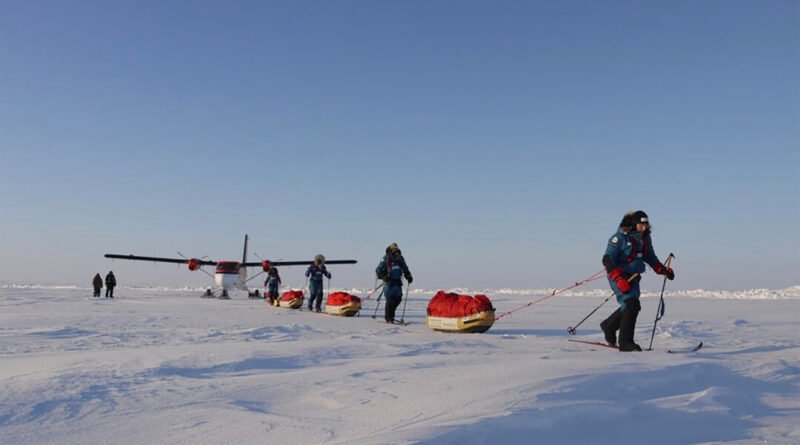Preparing for an Arctic Adventure: Researchers Face the Challenge of Battling Polar Bears and Eating Butter
An Australian researcher is set to embark on a month-long expedition on foot to measure Greenland’s ice sheet. Australian glaciologist and engineer Adrian McCallum will join four other members whom he has only interacted with online for this challenging journey.
Mr. McCallum, a professor from the University of Sunshine Coast (UniSC), has been rigorously training for the 580-kilometre (360-mile) trek by hauling four-wheel drive tyres up and down steep hills. The rest of the team hails from colder regions like Denmark, Germany, Sweden, and Greenland.
In preparation for the expedition, Mr. McCallum stated, “The other members of the expedition have been preparing and training in freezing winter conditions in Europe. I’ve been dragging tyres up and down the hinterland all summer. I’ll be fit enough. But it does mean I’m going to be really feeling the cold when I’m over there.”
Mr. McCallum’s primary goal is to use ground-penetrating radar to image the layers of rock beneath the ice and determine its thickness. This vital information is crucial for accurately assessing the mass of the Greenland ice sheet, which directly impacts sea levels.
Throughout the expedition, Mr. McCallum will also tow a receiver to provide high-accuracy elevation data for the ice cap. This data is essential for calibrating satellites to ensure precise elevation measurements of the ice cap.
During the expedition, Mr. McCallum and his team will consume dehydrated meals, electrolytes, and approximately two kilograms of butter chunks daily. The intake of butter, a high-calorie food, is crucial to sustain the team throughout their journey.
One of the anticipated challenges is the possibility of encountering polar bears. Mr. McCallum mentioned, “We are carrying a weapon to ideally scare a polar bear away, but worst-case, you aim to kill it.”
The expedition leader, Jan Rasmussen, emphasized the importance of low-impact exploration and scientific endeavors on foot to conduct critical research. The goal is to combine environmental sustainability with meaningful scientific engagement.
Mr. McCallum looks forward to sharing his experience with his engineering students and hopes to introduce expedition-based courses at the University of the Sunshine Coast. He believes such courses offer students opportunities for self-contemplation and realizing their full capabilities.



